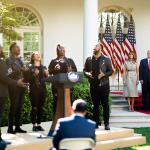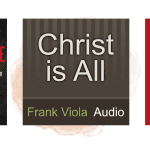David Swartz, author of Moral Minority, and at the link you can read the full post, which is just clipped here:
He is pressing the case that this is a good time to be an Anabaptist (politically speaking). Why? Nationalism, realpolitik, consumerism, and the consistently-pro-life ethic of anabaptists.
First, American political discourse tends to conflate the purposes of the nation with those of Christian faith. Republicans and Democrats alike entice Christians to follow a common script of nationalism. Each nurtures a strong attachment to the nation and willingness to use a strong state to press its Christian agenda: the populist Right in support of the military, sexual morality, and consumerism—and the populist Left in support of social justice, tolerance, and, again, consumerism. Each side trumpets a script of American exceptionalism. (If you think the Republicans are more egregious offenders, check out this year’s Democratic National Convention.) It can be a powerful and useful script because national loyalty sometimes binds very diverse peoples together.
… In the end, each side essentially practices different versions of an idolatrous civil religion.
Second, both sides practice realpolitik to accomplish their goals. Anything goes in the attempt to win. Parties enforce platforms, leaving little room for dissent, and they coerce adherents into following culture war scripts. They encourage the demonization of the enemy…. Donald Trump, who called his opponent “the devil,” applies cutting language to persons in poor, LGBTQ, and immigrant communities.
Liberals are also guilty. Jonathan Haidt, a social psychologist … : “Liberals don’t understand conservative values—and they don’t even try,” says Haidt. In short, the requirements of political pragmatism don’t align well with the fruits of the Spirit. How much love, joy, peace, kindness, goodness, faithfulness, gentleness, and self-control are you witnessing among politicians—or even Christians—in this election?
Third, both sides also support an unbridled consumerism. In his book The Unintended Reformation, Notre Dame historian Brad Gregory takes stock of the Reformation’s legacy. He concludes that it sparked Western social incoherence and secularization. What now binds the West together is money. Everyone agrees to produce and purchase as many goods as possible. Gregory writes, “We have substituted a life defined by the good with a life defined by goods.” The consumptive patterns normative in American conceptions of retirement, eating habits, leisure, and the use of time are legitimated by Christians who uncritically accept existing political and economic structures.
Finally, and there are variations here, but Anabaptists generally follow a consistent-life ethic that opposes Christian participation in war, abortion, and the death penalty. But practicing a consistent pro-life stance is nearly impossible in today’s two-party system and political climate. Perhaps it is more possible to participate electorally while not trumpeting nationalism, culture war scripts, and neo-liberal consumption. But there are very few examples of this.
… This is not to reject citizenship entirely. Anabaptists, always searching for third ways, insist on more creative approaches. After all, there are other ways of being political besides voting: practicing citizenship on a local level, adopting a more global than national identity, allying with social movements like #blacklivesmatter. …
So welcome! It’s a good time to be free from the constraints of a two-party system grounded in realpolitik. It’s a good time to invest in a robust theology of shalom. It’s a good time to be an Anabaptist. I hope you stick around when Ted Cruz starts trolling for your votes in four years.
[HT: JS]














